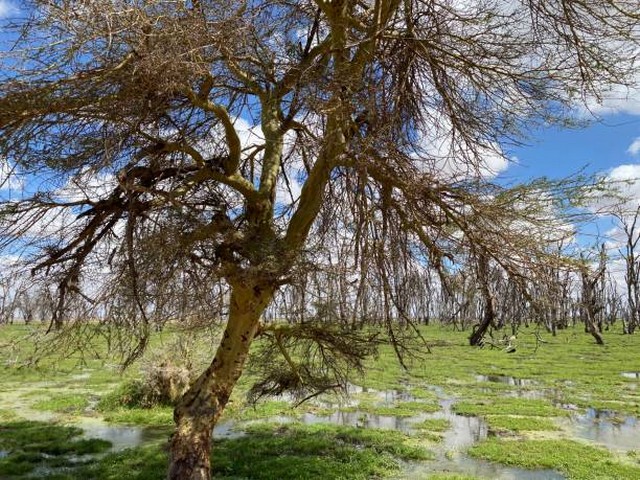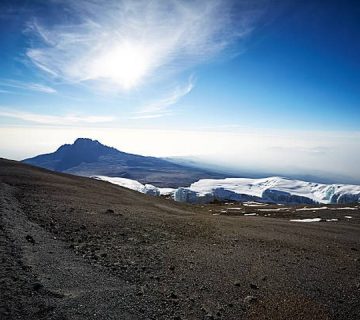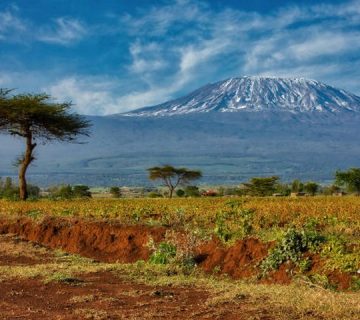How To Organize A Group Kilimanjaro Trek: The Ultimate Adventure with KCTE
Standing as a beacon of resilience and adventure, Mount Kilimanjaro calls to the heart of explorers around the globe. Planning a group trek to this majestic peak is not just about scaling a mountain; it's about building lifelong memories and forging bonds that last forever. At Kilimanjaro Centre for Trekking and Ecotourism (KCTE), we specialize in transforming your high-altitude dreams into reality. In this detailed guide, we'll walk you through the essential steps to organize an unforgettable group adventure to the roof of Africa.
Why Choose a Group Trek?
Unmatched Camaraderie
Imagine witnessing the sunrise from Uhuru Peak, not just with any crowd, but with your friends, family, or colleagues. There's something profoundly beautiful about sharing the struggle, the triumphs, and the awe-inspiring views with others. Group treks foster a sense of camaraderie and mutual support that makes the journey to the summit as rewarding as the destination itself.
Cost-Effectiveness
Traveling in a group can significantly reduce the cost per person as many expenses are shared. This includes guides, porters, and transportation, making it more economical than trekking solo.
Enhanced Safety
Group treks ensure that you have ample support on the mountain. With experienced guides from KCTE and a team that looks out for one another, the safety quotient of your trek increases manifold.
Planning Your Group Kilimanjaro Trek
1. Choose the Right Partners – KCTE
Selecting an experienced and reliable tour operator is crucial. Kilimanjaro Centre for Trekking and Ecotourism (KCTE) offers expert guides, comprehensive support, and tailor-made itineraries to suit your group's needs, ensuring a safe and enjoyable trek.
2. Pick the Perfect Route
Kilimanjaro boasts several routes, each with its own unique features:
- Marangu Route: Often called the ‘Coca-Cola' route, it is the most established and the only route offering hut accommodation.
- Machame Route: Known as the ‘Whiskey' route, this is more challenging but scenically beautiful with higher success rates.
- Lemosho Route: A longer route which allows better acclimatization and offers some of the most spectacular views.
- Rongai Route: The only route that approaches from the north, providing a more remote and gentle option.
Our team at KCTE can help you choose the best route that matches your group's fitness level and preferences.
3. Training Together
Preparation is key to a successful summit. As a group, start training several months in advance. Engage in regular hiking, cardiovascular exercises, and strength training. Organize weekend hikes to simulate trekking conditions and build stamina collectively.
4. Gear Up
Proper gear is essential for the challenging conditions on Kilimanjaro. Coordinate with your group to ensure everyone is equipped with:
- Insulated jackets and pants
- Quality hiking boots
- Sleeping bags suitable for sub-zero temperatures
- Headlamps, sunglasses, and sunscreen
- Water bottles and hydration systems
KCTE offers rental options for high-quality gear not easily accessible otherwise.
5. Acclimatize and Set a Flexible Itinerary
Acclimatization can make or break your summit success. Plan for extra acclimatization days. With KCTE, you can customize your itinerary to include additional days, allowing your body to adjust to high altitudes, thereby enhancing your summit chances.
What to Expect During the Trek
A Day on the Mountain
- Morning: Start with a hearty breakfast and an early trek to beat the sun.
- Afternoon: Reach the next camp by early afternoon, have lunch, and rest.
- Evening: Enjoy dinner prepared by KCTE's skilled cooks, followed by a briefing on the next day's trek.
The Summit Push
The final push to the summit typically starts at midnight. It's a grueling climb, but reaching the top as the sun rises is an unrivaled experience. The sense of achievement, coupled with panoramic views of Africa below, is truly monumental.
After the Descent
Celebrate your accomplishment with a ceremonial meal and perhaps a day or two of relaxation at one of Tanzania's beautiful lodges or beaches. KCTE can arrange post-trek relaxation packages to help you unwind and reflect on your incredible journey.
Why Book Your Trek with KCTE?
At Kilimanjaro Centre for Trekking and Ecotourism, we're not just about guiding you to the summit; we're about creating an enriching journey that resonates with every step. With us, you get:
- Ethical trekking practices
- Experienced, certified guides
- Customizable itineraries
- Support for local communities
- Comprehensive safety protocols
FAQs
What is the best time to climb Kilimanjaro?
The best times are during the dry seasons: January to mid-March and June to October.
How fit do I need to be to climb Kilimanjaro?
While you need not be an athlete, a good level of fitness is required. Regular training and preparation are key.
Can dietary restrictions be accommodated?
Absolutely! KCTE caters to various dietary requirements. Just let us know in advance.
How big can a group be?
There is no definitive limit, but typically groups of 10-15 are ideal for a balanced experience.
Ready to Conquer Kilimanjaro?
Organizing a group trek to Kilimanjaro is an adventure of a lifetime. It's about more than just climbing a mountain; it's about challenging yourself, bonding with peers, and making memories that last forever. Ready to embark on this journey? Contact Kilimanjaro Centre for Trekking and Ecotourism today, and let's start planning your group's successful summit of Kilimanjaro. Visit us at KCTE.com to learn more and book your trek. Adventure awaits!
Let KCTE be your guide to the top of Africa. Together, let's reach new heights!




